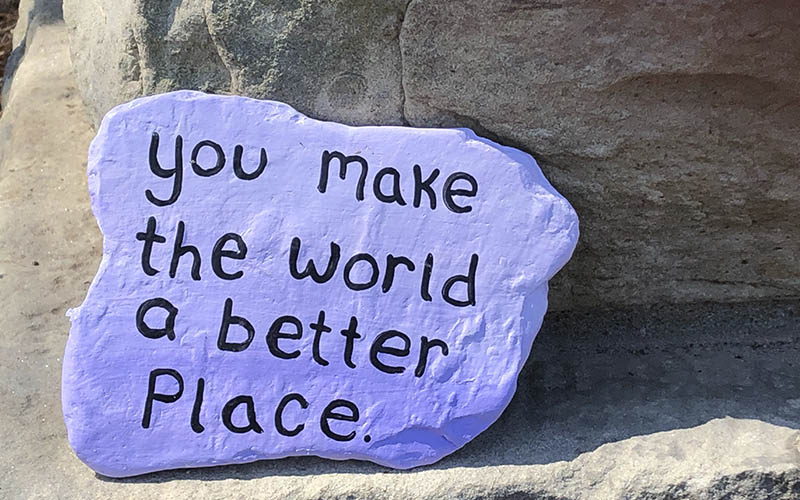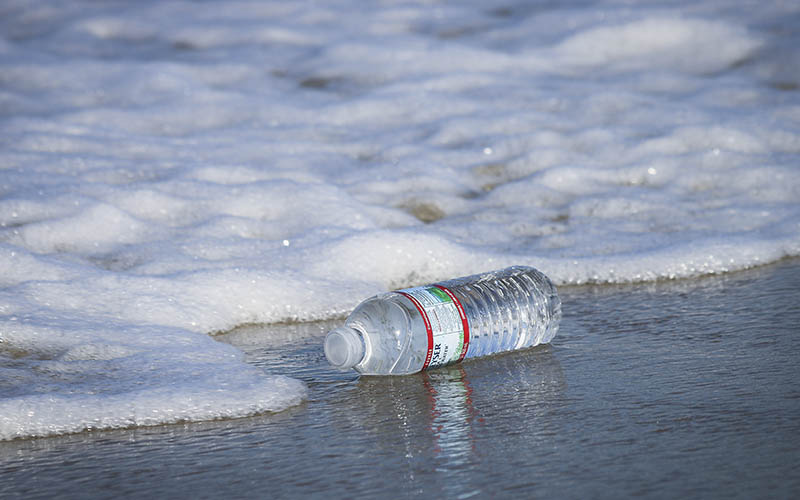Globally, Japan has an image of an abundant nature, however, the amount of plastic waste emissions per person is ranked the worst 2nd, next to the USA. Hence, it is hard to call the country an advanced country, concerning the environmental issues.
On the other hand, finally the consciousness to plastic reduction in Japan has been gradually increasing recently. This article summarizes examples of advanced activities that started working on the plastic reduction in Japan!
Advanced plastic reduction activities in Japan
Less Plastic Life (プラなし生活)

Less Plastic Life is a website that gathers up hints for a life with minimized amount of plastic use. Ryota Nakajima, a biological oceanographer, and Yoko Koga, a homemaker, operate the website in harness together. In a Japanese news TV program, “Close-up Gendai”, Ms. Koga was introduced as a practitioner of no-plastics.
Fee charging for plastic bags

On July 1st, 2020, the fee charging for checkout bags has begun in Japan too. Purchased items tend to be packed using too much wrapping due to the Japanese culture that places a great importance on a hospitality. The introduction of fee charging for checkout bags might prompt people to bring ecological bags with them.
Examples of Japanese corporations’ actions
- SKYLARK
SKYLARK, a company operates family restaurants located nationwide, has decided to remove disposable straws stocked at beverage bars.

- Nisshin
The mention of Nisshin reminds us of cup noodles. Although cup noodles has an image of being made using a lot of plastics, Nisshin has announced that they are going to gradually replace noodle containers made of papers or styrene foams with ones made of biodegradable plastics from now on.
2,3年かけて生分解性プラスチック製の容器に切換。|毎日:プラスチック危機:日清、麺容器に「生分解プラ」 数年後めどに切り替え https://t.co/GYfUHks7pP
— 有機農業ニュースクリップ (@OrganicNewsClip) August 24, 2018
- FUJIFILM
FUJIFILM is one of Japanese corporations that are particularly actively grappling with environmental issues. Its origin, photo films require a substantial amount of pure water when they’re produced, and also they cannot be tried prior to a photo shoot, “Trust is a part of the merchandise”, therefore, it is stated on its official website that the environmental preservation and trust are the fundamental premise of its corporate ideology.
As aforesaid, people’s awareness of environmental issues in Japan, at from an individual to corporation’s level, may have been gradually increasing. However, as matter of fact, they’ve been taking a slow start compared to corporations in the other advanced nations. For reference, examples of foreign corporations making positive efforts to grapple with environmental issues are the following.
Examples of foreign corporations’ positive efforts to reduce plastics
- H&M
Anyone who brings old clothes to H&M can get a 500 yen discount store coupon.
コクーンさいたま新都心の
H&Mに要らない服を寄付してきました!
服1袋で500円引きクーポン貰えます!メルカリでは10枚セット300円くらいで売ってます!
寄付ボックスはレジ前にありました!レジの人に寄付したんですけどっていうとクーポンが貰えます これからも寄付したいので潰れないで下さい! pic.twitter.com/CxZDV51Yn9— 浦和たまこちゃん(浦和裏日記:さいたま市の地域ブログの中の人) (@saitama_tamako) July 9, 2020
- LUSH
Although it is hard for the cosmetics industry to go plastic free, LUSH globally leads the plastic reduction by offering cosmetics without containers and so on.
LUSH has also started to sell Furoshiki style eco bags! Very handy with 50cm convini size..!

エコバッグ買い足そうかな?と思ってる人にオススメLUSHの風呂敷!
めちゃくちゃカラフルお洒落で素敵☺️🌸
風呂敷だから買った物サササーって包んで簡単、持ち運びもペタンコ✨✨
オススメ!!!!
三枚目のと、一番大きいサイズのも買った!満足☺️💓https://t.co/ahneuMepNH pic.twitter.com/RKur5ZfV4k— 餅肌 スベ子👦👧 (@hyper08250517) July 8, 2020
- Starbucks
Since the days even before paper straws started gathering people's awareness, Starbucks had been waving the banner of removing a use of plastic straws by 2020. Although it’s not unusual that a use of paper straws is recommended nowadays, considering how people back then were very reluctant to use paper straws, we can say that the company was the global pioneer of addressing the importance of reducing plastics.
A change in individuals’ attitude toward environmental issues is necessary.

In addition to plastics reduction actions at a corporate level, individuals’ attitude toward environmental issues is required to change from now on. Why don’t you take part in grappling with environmental issues by knowing what companies are taking what kind of actions and then by supporting them?














